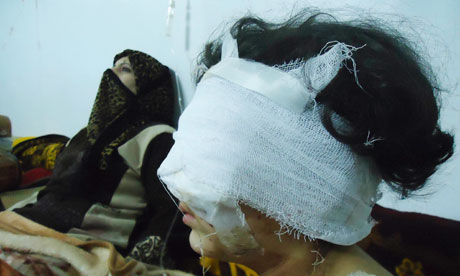By Greg Donaldson
Impunity Watch Reporter, Asia
SEOUL, South Korea – Twenty-three year old Park Jung-geun was indicted last Tuesday on charges that he violated South Korea’s controversial National Security Law. The National Security Law broadly bans “acts that benefit the enemy” referring to North Korea. However, the law does not explain what acts are violations of the law. If convicted, Park could receive up to seven years in prison.

Park is a well-known social media and freedom-of-speech activist and a member of the Socialist Party. Park, who runs a photo studio in Seoul where he specializes in taking pictures of babies, was arrested last month for re-tweeting messages posted on the Twitter account of North Korea’s Committee for the Peaceful Reunification of Korea.
Park reposted messages such as “Long live Kim Jong-Il” and “Dear General Kim Jong-Il is the genius of the military and the symbol of victory who the entire world looks up to and follows,” according to South Korea’s Yonhap news agency.
In his personal postings on Twitter, Park has compared himself to “The Young General ,” referring to Kim Jong—un, because he inherited his photo studio from his father. Park has also posted links to North Korean propaganda songs and a North Korean poster that he altered. Park transformed the soldier’s face to his own and replaced the soldier’s gun with a bottle of whiskey.
Park, whose Twitter profile picture shows him standing in front of a red-starred North Korean flag with a near-empty bottle of whiskey in his hand, says he re-tweeted posts from Pyongyang’s Twitter account that he thought were ridiculous. In an interview last December, Mr. Park said “it was humiliating and ludicrous to have to wear a straight face and explain all my jokes to the detectives.”
The South Korean government has taken Mr. Park’s actions very seriously. When investigators searched Park’s apartment they copied computer hard drives and confiscated books and photographs. After five interrogation sessions Mr. Park was arrested.
Sam Zarifi, Asia-Pacific director of Amnesty International, called the charges “ludicrous” and said they should be dropped immediately. She further explained, “This is not a national security case; it’s a sad case of the South Korean authorities’ complete failure to understand sarcasm.”
The United Nations Human Rights Commission and Amnesty International have called for the National Security Law to be diluted or repealed. Rajiv Narayan, a researcher for Amnesty International, has said the law has a “chilling effect on critics of the government’s North Korea policies. Proponents of the National Security Law defend it vigorously explaining that the law is a defense against North Korea and it is especially important as Kim Jong Un gains power.
For more information please see:
Los Angeles Times – South Korean Security Law is used to Silence Dissent, Critics Say – 5 February 2012
CBC News – South Korean Charged for Re-Tweeting North Korean Posts – 2 February 2012
New York Times –South Korean Indicted Over Twitter Posts from North—2 February 2012
Washington Post – South Korean Indicted for Re-Tweeting Messages from North Korean Government – 2 February 2012



